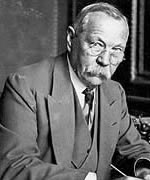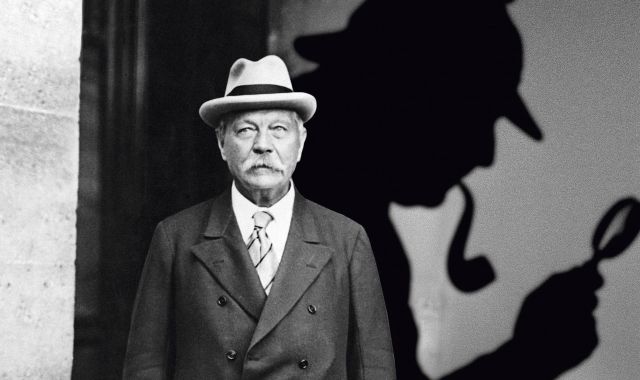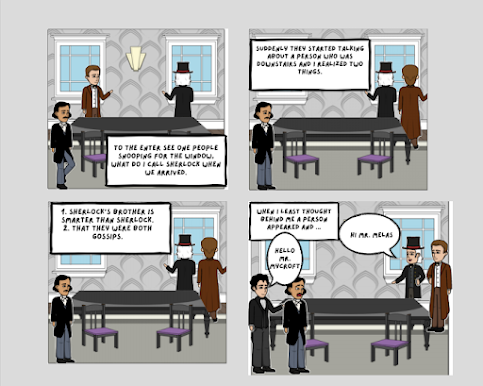The greek interpreter
Trabajo de ingles para el grado 11-2.
sábado, 30 de octubre de 2021
miércoles, 20 de octubre de 2021
Project
Natural Park
Miguel Galeano y
Sebastián Medina
I.E. José Miguel de
Restrepo y Puerta
Degree 11-2
Prof. Sandra C. Cárdenas Garcia
October 30 of 2021
Abstract:
English
Considering
students Best academic, and after the lack of space with the conditions
appropriates to incentive the lecture; we carry out the realization of a
project in joint the who benefits so many students how people out of this. With
basis to deem we got a natural park with space to carry out lectures both
individual and group mind, and to turn space to rest and other to feed; using
the environmental sustainability how an element fundamental in our project,
becoming this in an optimal space for the development of people with appropriate
social skills, because they can have a development interpersonal and
intrapersonal suitable intervening the realization of activities mental and/or
social.
Spanish
Al querer que los estudiantes tuvieran un mejor
desempeño académico, y tras observa la falta de un espacio con las condiciones
apropiadas para incentivar la lectura; llevamos a cabo la realización de un
proyecto en conjunto el cual beneficia tanto a estudiantes de la institución
como personas fuera de esta. Con base a esto obtuvimos un parque natural con
espacios para realizar lecturas tanto individual como grupal mente, y a su vez
un espacio para descansar y otro para alimentarse; utilizando la sostenible ambiental
como un elemento fundamental en nuestro proyecto, convirtiéndose este en un
espacio óptimo para el desarrollo de personas con adecuadas habilidades
sociales pues pueden tener un desarrollo interpersonal e intrapersonal adecuado
mediante la realización de actividades mentales y/o sociales.
Introduction:
In our project we
want to encourage reading to stimulate cognitive development in space open an
air, for the comfort of any person, as well as the institution and outside it.
Our project is a natural park which counts with three spaces, one of reading,
another of rest and another to eat. This natural park it has a total area of
882m2. for our project based on environmental sustainability, this is so that
in the future we will have the same or better quality of life than the present.
Problematic question:
How to stimulate
reading comprehension and creativity, and that, also, it is in harmony with the
environment?
Objective general:
Design an
innovative space that enables the development of an autonomous and efficient
creative sprit through reading and understanding.
Objective specific:
-
Come
up with proposals for remodeling.
-
Select
the most suitable proposal.
-
Estimate
the appropriate space for the proposal.
-
Inquire
the time.
-
Estimate
the material.
-
Budget
the proposal.
-
Digital
plans and project manuals.
-
Project
layout.
Theoretical framework:
Studies carried out in 2014 show that reading for
pleasure generates better school performance and, therefore, better grades.
Therefore, reading should be a habit practiced by all students, both to expand
their knowledge and vocabulary, as well as to develop linguistic and cognitive
skills from the creativity and imagination that every good book offers.
The approach to the book and reading should take place
from an early age and be accompanied by an adult who guides this activity in a
didactic and pleasant way, thus achieving the promotion of reading in children,
who in turn need a space where they can perform an adequate reading, where
people can feel comfortable to obtain better performance when reading.
Space is something important in the learning model
and the more comfortable the place, the more it would encourage people to spend
more time in it.
That is why reading and access to a pleasant space implementing
or taking into account nature would be much more beneficial since it is an
environment in which the academic performance and healthy development of
students increases, when being implemented in a school, It can be used so that
they can achieve better cognitive, linguistic and creative performance, in turn
being able to obtain a good habit of reading from a young age; in addition,
normalized development in adult life is also beneficial.
Literature review:
- Facultad
de arquitectura y urbanismo. (2016). CONVENCIONES GRÁFICAS PARA PROYECTOS DE
ARQUITECTURA (Archivo PDF). file:///C:/Users/SST/Downloads/Dialnet-ConvencionesGraficasParaProyectosDeArquitectura-696106.pdf
Federación
de enseñanza de CC.OO. de Andalucía. (2012). La lectura: base del aprendizaje
(Archivo PDF). https://www.feandalucia.ccoo.es/docu/p5sd9626.pdf
Sostenibilidad
ambiental (Archivo PDF). http://proyectos.andi.com.co/Libro2/Paginas/assets/docs/capitulo-01.pdf
Importancia
del organigrama en una empresa (Archivo PDF). https://d1wqtxts1xzle7.cloudfront.net/53223180/IMPORTANCIA_DEL_ORGANIGRAMA_EN_UNA_EMPRESA-with-cover-page-v2.pdf?Expires=1635611166&Signature=HHnCSoDzPHqb4deJ4X100pWEY0LD8p~2A3UQx9tzT8iyKOhYeSFpsl8lfHuj5je0sT0LWCK-Qamze8CtcOHY1DZR5J-CjrVpPoE-zxNvJTkeGkyEYOz4NEGZqrStSTaZ4bpI3-6Wt4i4M7qTJJemfKnFXIX9RkjbsiQS5~0EpWgt4iJ9BTROAR0w9sPE8e989l7wdQ1pr8yCqyE5~z625i56-FX72EV6mdwfzqqvSRyJXHxo8-UVTMRZaSVHI5F1EhxWRVgiG2lZ53qDK3VBd~NshRJ7mf6pbzJVznKHzLbqc~QlI0h9FsvktS6UzjYk20BW-qF-mIJO6yP9p5ALPQ__&Key-Pair-Id=APKAJLOHF5GGSLRBV4ZA
El
impacto de la arquitectura en el medio ambiente (Archivo PDF). http://catarina.udlap.mx/u_dl_a/tales/documentos/lar/martagon_rosado_m/capitulo-4.pdf
Margarita
de Luxan García de Diego. (1996). Arquitectura integrada al medio ambiente (Archivo
PDF). file:///C:/Users/SST/Downloads/Dialnet-ArquitecturaIntegradaEnElMedioAmbiente-1333767.pdf
Ana
Belen Quintana Navarro. Análisis del mercado(Archivo PDF). http://accioneduca.org/admin/archivos/clases/material/analisis-de-mercado_1563825598.pdf
Methodology:
The methodology used was the search through Google
and Google Scholar, using keywords such as natural park, environmental
sustainability, reading and learning.
Data
collection instruments:
Data collection was carried out through observation
and a documentary analysis covering group cases of a population.
Analysis of data:
When analyzing the
data, we found that the school has limited places to stimulate our reading
comprehension and creativity, the students have little interpersonal and
intrapersonal skills, little increase in their knowledge, low level of
inspiration and imagination.
Discovery:
Natural park, where students and the rest of the educational community can strengthen their creative and reading spirit, as well as where they can carry out activities such as eating, talking or simply resting.This space has three areas so that students are more
comfortable and are not interrupted when carrying out their reading activities,
thus providing two alternate spaces so that other students can rest and eat
without disturbing others.
Corte AA:
Corte BB:
To this Project we
implement elements that help to obtain environmental sustainability which are:
Book dispenser: Inspired by the exchange of books, we created a
dispenser where instead of edible products, they are books and instead of
money, plastic covers to contribute to the care of the environment.
Tree barrier: We use them as they are very beneficial for health,
taking care of UVA rays and purifying oxygen.
Solar floor lamps: This capture sunlight to produce exterior
lighting and these are composed of a light collector that is usually a solar
panel.
Conclusion:
Students will have
an interpersonal and adequate intrapersonal. Well, they have optimal spaces for
the development of activities mental and/or social, thus being our project a
contribution to the development of people with adequate social skills.
References
Homecenter, (24 de noviembre de 2020). Homecenter – Decoración,
Muebles, Electrodomésticos, Herramientas y Construcción
https://static.t13.cl/images/sizes/1200x675/1518031644-auno897047.jpg
Mercado libre
(2018). Luces solares LED - https://http2.mlstatic.com/luz-solar-de-jardim-lampadas-led-D_NQ_NP_542201-MLB20298485681_052015-O.jpg
Muebles
exteriores e interiores, (2020). Homecenter – Decoración,
Muebles, Electrodomésticos, Herramientas y Construcción
sábado, 28 de agosto de 2021
viernes, 27 de agosto de 2021
jueves, 26 de agosto de 2021
Summary
Summary of the Greek
Interpreter
ESPAÑOL
La aventura del
intérprete griego comienza con una
discusión entre Sherlock Holmes y el Dr. Watson sobre los rasgos hereditarios. Anteriormente,
Watson siempre había asumido que Holmes es único, hijo único, con capacidades
singulares. Sin embargo, Holmes se apresura a aclarar a su amigo, ya que
Sherlock tiene un hermano mayor llamado Mycroft.
Sherlock considera que el
intelecto de Mycroft supera al suyo, pero el detective también reconoce que
Mycroft no tiene la energía para ir junto con el intelecto; con Mycroft
perfectamente cómodo para ser considerado incorrecto, en lugar de hacer el
esfuerzo de demostrar que tiene razón.
Sherlock, sin embargo, ha buscado
en ocasiones el consejo de su hermano; con Sherlock visitando a Mycroft en
el Diógenes Club, con la guía que normalmente resulta precisa.
Esta vez, sin embargo, Mycroft ha
buscado a Sherlock, porque el Sr. Meles, un intérprete griego y vecino de
Mycroft, había buscado el consejo de Mycroft.
Un hombre llamado Harold Latimer
había solicitado los servicios del Sr. Meles para que actuara como intérprete
de griego. Habían recogido al señor Meles en un taxi oscurecido y, aunque
le dijeron que el destino sería Kensington, el viaje duró más de lo debido. Latimer
también produjo un garrote, con la amenaza implícita de violencia.
Latimer le diría al Sr. Meles que
sería recompensado por sus servicios, pero también exigió silencio futuro del
intérprete.
El taxi oscurecido eventualmente, después de un par de horas, se detendría en una casa grande lujosamente decorada.
En la casa, el Sr. Meles se encuentra con un segundo hombre, Wilson Kemp, y pronto habrá más pruebas sobre lo irregular que iba a ser este trabajo de interpretación. Un tercer hombre fue llevado ante la presencia del intérprete griego, pero inicialmente, la boca de este hombre estaba cubierta con yeso pegajoso.
Se pidió al Sr. Meles que le
hiciera al hombre anónimo ciertas preguntas, pero cuando el Sr. Meles se dio
cuenta de que tanto Latimer como Kemp ignoraban el idioma griego, el intérprete
también logró interponer sus propias preguntas.
A partir de sus propias
preguntas, el señor Meles descubrió que el cautivo se llamaba Paul Kratides, un
griego al que Latimer y Kemp intentaban hacer firmar unos papeles. Paul
Kratides había estado en Inglaterra durante tres semanas, pero no tenía idea de
dónde se encontraba actualmente.
En ese momento el interrogatorio
se interrumpió cuando una mujer entró en la habitación. Esta mujer llamó
de inmediato a Kratides, llamándolo por su nombre de pila. Paul Kratides
luego se quitó el protector bucal y llamó a la mujer Sophy.
Paul y Sophy fueron separados
rápidamente, y luego el Sr. Meles fue conducido de la casa al taxi oscurecido
nuevamente. Siguió otro largo viaje, pero en lugar de regresar a casa, el
Sr. Meles fue dejado en Wandsworth Common. Sin embargo, el intérprete
griego no se entretuvo e inmediatamente fue a buscar el consejo de Mycroft
Holmes.
Se habían colocado anuncios en
los periódicos, los anuncios pidiendo información sobre una dama griega que se
alojaba en Inglaterra o un hombre llamado Paul Katrides.
El problema se presentó ahora a Sherlock Holmes, y el detective envía algunos telegramas, pero es Mycroft quien trae el siguiente desarrollo, ya que ha tenido una respuesta a los avisos del periódico colocados. A Mr. Davenport le dice que Sophy se está quedando en una casa conocida como Myrtles en Beckenham.
Con cierta urgencia se hacen planes para ir a Beckenham, y se decide que el inspector Gregson se una a ellos. También se considera una buena idea recoger al Sr. Meles, en caso de que se necesite un intérprete de griego.
Sin embargo, cuando el grupo llega a la residencia de Meles, descubren que el intérprete griego ya ha sido recogido por un taxi; algo que no augura nada bueno para la seguridad del intérprete.
Cuando el grupo de los hermanos Holmes, Watson y Gregson llegan a los Myrtles, parece que la casa ha sido abandonada; La evidencia muestra la partida del carruaje muy cargado.
Sin embargo, la casa no está tan vacía como parece, ya que al atravesar una puerta cerrada, el grupo encuentra a Paul Kratides y al Sr. Meles; ambos hombres han sido gaseados con vapores de carbón. El rescate resulta demasiado tarde para Paul Kratides, pero la atención del Dr. Watson ve al Sr. Meles salvado.
El rescate también llegó demasiado tarde para arrestar a Latimer y Kemp, o rescatar a Sophy.
Las lagunas en el conocimiento de Sherlock Holmes sobre el caso pronto se llenan.
Los amigos habían advertido a Paul Kratides sobre la influencia que Latimer estaba ejerciendo sobre Sophy, y el hermano había viajado a Inglaterra desde Grecia para rectificar esa situación. Sin embargo, Paul Kratides se había convertido en prisionero de Latimer, y este último había intentado que el primero firmara la propiedad de Sophy; por supuesto, Paul Kratides se había negado a hacerlo, lo que finalmente lo llevó a su propia muerte.
Hay una nota a pie de página para la aventura por la llegada de la noticia de la muerte de dos ingleses, Latimer y Kemp, en Hungría. Parece que los dos se han matado durante una pelea; pero Sherlock Holmes tiene un fuerte indicio de que la muerte de los dos hombres ha sido causada por Sophy; la hermana consiguiendo su venganza.
Ingles
Sherlock considers that the
intellect of Mycroft outstrips his own, but the detective also recognises that
Mycroft doesn’t have the energy to go along with the intellect; with Mycroft
perfectly comfortable to be considered wrong, rather than make the effort to
prove himself right.
Sherlock though, has on occasion,
sought out the advice of his brother; with Sherlock visiting Mycroft at the
Diogenes Club, with the guidance normally proving accurate.
This time though, Sherlock has
been sought by Mycroft, for Mr Meles, a Greek interpreter and neighbour of
Mycroft, had sought the advice of Mycroft.
A man by the name of Harold
Latimer had sought out the services of Mr Meles, to act as a Greek interpreter.
Mr Meles had been collected in a blacked-out cab, and although told the
destination was to be Kensington, the journey lasted for longer than it should.
Latimer also produced a bludgeon, with the implicit threat of violence.
Latimer would tell Mr Meles that
he would be rewarded for his services, but also demanded future silence from
the interpreter.
The blacked-out cab would eventually, after a couple of hours, pull up at a large, expensively decorat house.
At the house, Mr Meles encounters a second man, Wilson Kemp, and soon there if more evidence about just how irregular this interpreting job was going to be. A third man was brought into the presence of the Greek interpreter, but initially, the mouth of this man was covered in sticking plaster.Mr Meles was asked to ask the
anonymous man certain questions, but as Mr Meles realised that Latimer and Kemp
were both ignorant of the Greek language, the interpreter managed to interpose
his own questions as well.
From his own questions Mr Meles
discovered that the captive man was named Paul Kratides, a Greek man who
Latimer and Kemp were trying to make sign some papers. Paul Kratides had been
in England for three weeks, but had no idea where he currently was.
At that moment the questioning
was interrupted when a woman entered the room. This woman immediately called
out to Kratides, calling him by his first name. Paul Kratides then ripped off
his mouth guard, and called the woman Sophy.
Paul and Sophy were quickly separated,
and then Mr Meles was ushered from house into the blacked-out cab again.
Another long drive ensued, but rather than being returned home, Mr Meles was
dropped off on Wandsworth Common. The Greek interpreter didn’t dawdle though,
and immediately went to gain the advice of Mycroft Holmes.
Advertisements had been placed in
the papers, the ads asking for information about a Greek lady staying in
England, or a man named Paul Katrides.
The problem was now placed before
Sherlock Holmes, and the detective sends of a few telegrams, but it is Mycroft
who brings the next development, for he has had an answer to the placed
newspaper notices. A Mr Davenport tells that Sophy is staying at house known as
the Myrtles in Beckenham.
When the party arrive at the
Meles residence though, they find that the Greek interpreter has already been
picked up by a cab; something that doesn’t bode well for the safety of the
interpreter.
When the party of the Holmes
brothers, Watson and Gregson arrive at the Myrtles it appears that the house
has been abandoned; evidence shows the departure of heavily laden coach.
The house though, is not quiet as
empty as it appears, as breaking through a locked door, the party find Paul
Kratides and Mr Meles; both men have been gassed with charcoal fumes. The
rescue proves too late for Paul Kratides, but the attention of Dr Watson sees
Mr Meles saved.
The rescue has also come to late
to arrest Latimer and Kemp, or rescue Sophy.
The gaps in Sherlock Holmes’
knowledge of the case are soon filled in.
Friends had warned Paul Kratides
about the influence that Latimer was exerting over Sophy, and the brother had
travelled to England from Greece to rectify that situation. Paul Kratides had
though become a prisoner of Latimer, and the latter had tried to make the
former sign over Sophy’s property; of course, Paul Kratides had refused to do
so, ultimately leading to his own death.
There is a footnote to the
adventure for news arrives of the death of two Englishmen, Latimer and Kemp, in
Hungary. It appears that the two have killed each other during a fight; but Sherlock
Holmes has a strong inkling that the deaths of the two men have been caused by
Sophy; the sister getting her revenge.
miércoles, 25 de agosto de 2021
Biography of the author
Arthur Ignatius Conan Doyle
 |
| Arthur Ignatius |
Gracias a su versatilidad literaria, Conan Doyle tuvo el mismo éxito con sus novelas históricas, como Micah Clarke (1888), The White Company (1890), Rodney Stone (1896) y Sir Nigel (1906), así como con su obra de teatro History. de Waterloo (1894).
Durante la Guerra de los Bóers fue médico militar y a su regreso a Inglaterra escribió The Boer War (1900) y The War in South Africa (1902), justificando la participación de su país. Por estas obras se le concedió el título de señor en 1902.
Durante la Primera Guerra Mundial, escribió La campaña británica en Francia y Flandes (6 volúmenes, 1916-1920) en homenaje a la valentía británica. La muerte en la guerra de su hijo mayor se convirtió en un defensor del espiritismo, dedicándose a dar conferencias y escribir extensamente sobre el tema. Su autobiografía, Memories and Adventures, se publicó en 1924.
Murió el 7 de julio de 1930 a los 71 años de un infarto, en Crowborough (Inglaterra). Una estatua de él está en ese pueblo donde vivió durante 23 años.
Sus obras mas destacadas:
- El Archivo de Sherlock Holmes
- El mundo perdido
- El Regreso de Sherlock Holmes
- El Sabueso de los Baskerville
- El valle del Terror
- La zona ponzoñosa
- Sir Nigel
- Su última reverencia
Arthur Ignatius Conan Doyle
 |
| Arthur Ignatius |

- The Sherlock Holmes Archive
- The lost World
- The Return of Sherlock Holmes
- The baskerville's hound
- Valley of Terror
- The poisonous zone
- Sir Nigel
- His last bow
lunes, 23 de agosto de 2021
domingo, 22 de agosto de 2021
sábado, 21 de agosto de 2021
Characters
Español
Personajes:
John Watson: Es el amigo y compañero de trabajo de Sherlock Holmes, los
cuales resuelven casos como lo es el del intérprete griego.
Mycroft Holmes: Es el hermano mayor de Sherlock Holmes y es quien le
muestra el caso de su vecino Melas y además también ayuda a resolverlo, gracias
a que tiene una gran capacidad de deducción; incluso mayor que la de su
hermano.
Sherlock Holmes: es el detective que lleva a
cabo el caso del intérprete griego junto a su hermano Mycroft y su amigo
Watson. Es una persona muy activa y que además contiene un poder de deducción
muy alto.
Mr. Melas:
Es un intérprete griego que fue obligado a estar en un secuestro. Es quien
demanda lo sucedido con el griego o da a conocer su caso.
Harold Latimer: Es el cómplice del secuestro del griego y quien va a
buscar al intérprete.
Kratides (Paul): Es el griego secuestrado, al cual le quieren quitar sus
posesiones.
Shophy:
Es la hermana del griego que está secuestrado.
Wilson Kemp: Es la cabecilla del secuestro, por lo tanto, es quien
intenta quitarle las pertenecías al griego (El nombre de este personaje sale
casi al final del libro, y la forma en que lo saque es porque ya me vi la
película. Cabe recalcar que tiene participación desde la pág. 8 pero no se menciona
su nombre hasta el final).
Inglés
Characters:
John Watson: He is the friend and colleague of Sherlock Holmes, who solves cases such as the Greek interpreter.
Mycroft Holmes: He is the older brother of Sherlock Holmes and he is the one who shows him the case of his neighbor Mr. Melas and also helps to solve it, thanks to that he has a great capacity for deduction; even bigger than his brother's.
Sherlock Holmes: he is the detective who carries out the case of the Greek interpreter with his brother Mycroft and his friend Watson. He is a very active person and also has a very high deduction power.
Mr. Melas: He is a Greek interpreter who was forced to be in a kidnapping. He is the one who demands what happened with the Greek or makes his case known.
Harold Latimer: He is the accomplice in the kidnapping of the Greek and who is going to look for the interpreter.
Kratides (Paul): He is the kidnapped Greek, whose possessions they want to take away from him.
Sophy: She is the sister of the Greek who is kidnapped.


























